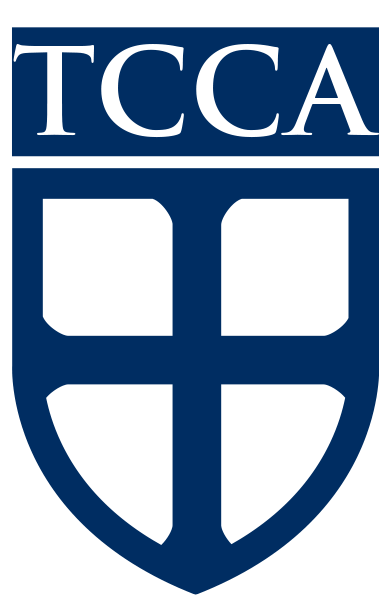Pre-K Program/VPK
In the classical model of education, pre-kindergarten is considered the “Beginning Grammar Stage”, which is the time period leading up to the formal “Grammar Stage” (school-age). During this time of learning, children will be exposed to:
- Memorization through songs, rhymes, poems, and scripture
- Virtue study through both academics and behavior
- Classic books and poems which aid in pre-reading readiness as well as virtuous living
Treasure Coast Christian Academy takes pride in offering one of the best Pre-Kindergarten programs in the county. Our goal at TCCA is to partner with parents to provide a strong spiritual foundation to preschoolers in a loving, nurturing, Christ-centered environment of discovery and learning.
Pre-K instructional time begins at 8:30 a.m. for the morning session and 1:00 p.m. for the afternoon session. Vital elements of the day’s agenda include phonics, reading readiness, math, language, etc. Our skilled teachers outline key activities to maximize areas of interests in order to enhance the learning capabilities of each child. One of the objectives is to fine-tune the skills needed to adapt to the Kindergarten setting. Some of which are: self-control, listening, following instructions, cooperation, and others.
Children engage individually as well as collectively in the highly rated, nationally recognized, Creative Curriculum Studies, Handwriting Without Tears, and a beginner reader program. Learning environments such as math & manipulatives, reading/listening corner, science centers, dramatic, blocks, and sand and art areas give each child a wide range of opportunities to choose from. A focus on weekly themed lessons coordinated with letters of the alphabet and activities creates a well-rounded atmosphere for learning. A more academic focus with just the right balance of play offers children first-rate preparations for Kindergarten.
Program Features
- Instruction through the “Beginning Grammar Stage” of classical education
- Low student-to-teacher ratio
- A unique network of support that meets the distinctive needs of each child in a Christ-centered environment
- Thematic elements to enhance and maximize learning experiences
- Focus on developing and fine-tuning readiness skills for Kindergarten
- Regular communication between teachers and parents to keep parents informed about their child’s day
Criteria to enter an Pre-K Program
- Preschoolers must be 4 years old before September 1st of the year entering the program.
- All immunizations must be current.
- Uniforms are required and may be purchased through our website.
FAQS
Florida Early Learning and Developmental Standards for 4 year olds. Download PDF
At TCCA, we strive to meet the standards set by The School District of West Palm Beach. We send report cards home and students will either score an ‘S’ or an ‘N’. This will help you see how they are doing in correlation to the standards listed above for four-year-olds. Below are the grading standard used and a link to a sample report card to see the areas they will be assessed in for the year.
Grading Standard:
S = Satisfactory: the child has met all developmental academic milestones and standards for kindergarten readiness.
N = Needs Improvement: the child is working towards meeting all developmental academic milestones and standards for kindergarten readiness.
Report cards will be sent home three times during the school year. Parents are urged to study the student’s report card with care, and sign its corresponding envelope upon review and it return back to the teacher the next school day. If questions arise, please arrange to speak with the teacher. If there is still a problem, please make an appointment to speak with the principal.
Students are encouraged to work daily on their reading and handwriting skills. Occasional supplemental items may be given to help students reinforce the skills they have learned in class. These items do not need to be returned for grading purposes, but parents are encouraged to complete them with their child.
Best ways to support writing at home
How you can help at home: Support your child with these writing strategies.
By Wendy Miller, Consulting Educator
Follow these tips to support your child’s writing at home.
Provide a place for your child to write.
The area should be an area that is quiet and well lit. Stock the “writing center” with supplies such as paper, pencils and crayons. You can also gather family photos and magazines in the center that can be used as story starters.
Read, read, read!
The best activity to improve writing is reading. If your child reads good books, he will be a better writer. Reading exposes students to general vocabulary, word study and content-specific vocabulary. Through reading, students see a variety of authors’ techniques that they can use in their own writing.
Encourage your child to keep a reflective journal.
This is excellent writing practice, as well as a good outlet for venting feelings. Encourage your child to write about things that happen at home and school. This reflective journal can be used to develop the “senses” of writing. Have your child write about what he saw, heard or felt on a trip or adventure. Provide experiences in your community that will interest your child and spark her writing. Especially encourage your child to write about personal feelings — pleasures as well as disappointments. When reading your child’s journal (only if your child invites you to, of course), share your own feelings and ideas paired with positive feedback about your child’s writing.
Provide authentic writing opportunities for your child.
Have your child write his own thank-you notes, party invitations and letters to family. Let your child make the grocery list. Finding a pen pal for your child would make writing “real.” Helping children make the connection between writing and the “real” world will increase an interest in writing.
Be a writing role model.
Make sure your child sees you as a writer. Point out times that you use writing to communicate with others. Discuss authentic writing in the community such as articles and letters in the newspaper, on billboards or in written advertisements. Discuss the purpose of the writing and the target audience. When your child writes, you should write. You can schedule a day of the week that you will turn off the television and share your writing.
Start a vocabulary notebook.
Teach your child new words each week and encourage her to use them. Make it into a game and give points for using the new words. Your child can keep a vocabulary notebook and get rewarded for the number of new words learned. The words will begin to appear like magic in her oral language and writing.
Ask questions.
Always ask your child questions when he writes. Ask specific questions about your child’s writing such as: “How did that happen?” “How did that make you feel?” “Can you tell me more about that…?” “What are some other words you could use to describe…?”
Help your child publish her writing.
Share her writing with others, place it on the refrigerator or encourage her to write for kids’ magazines. When your child’s writing is published in a children’s book, she will be on her way to becoming a lifelong writer and author.
Wendy Miller has taught for 19 years in grades K-5. She has a BA in Special Education and a master’s in Curriculum and School Administration. She has received many awards and recognitions, including North Carolina Teacher of the Year 2005-2006 and Southeast Region Teacher of the Year 2004-2005, and was featured in the ABC Television Special, “Heroes in the Classroom,” in 2003.
Family Central checks each child’s attendance record every month. VPK instructional hours are Monday-Friday from 9am-12pm. To receive full credit from Family Central, a child must be in attendance during at least 80% of the instructional hours each month. If a child is absent more than 20% of the instructional hours, Family Central will adjust the credit paid and the parent/guardian will be responsible for the difference owed to TCCA.
Family Central will be checking sign in/out sheets every month. Parents/guardians must fill each day out with the proper date, time, and signatures that are legible, with the complete name of the person dropping off/picking up being signed. Short forms must be signed monthly. To minimize the number of absences it is suggested that families plan vacations during Thanksgiving break, Christmas break, and Spring break.


